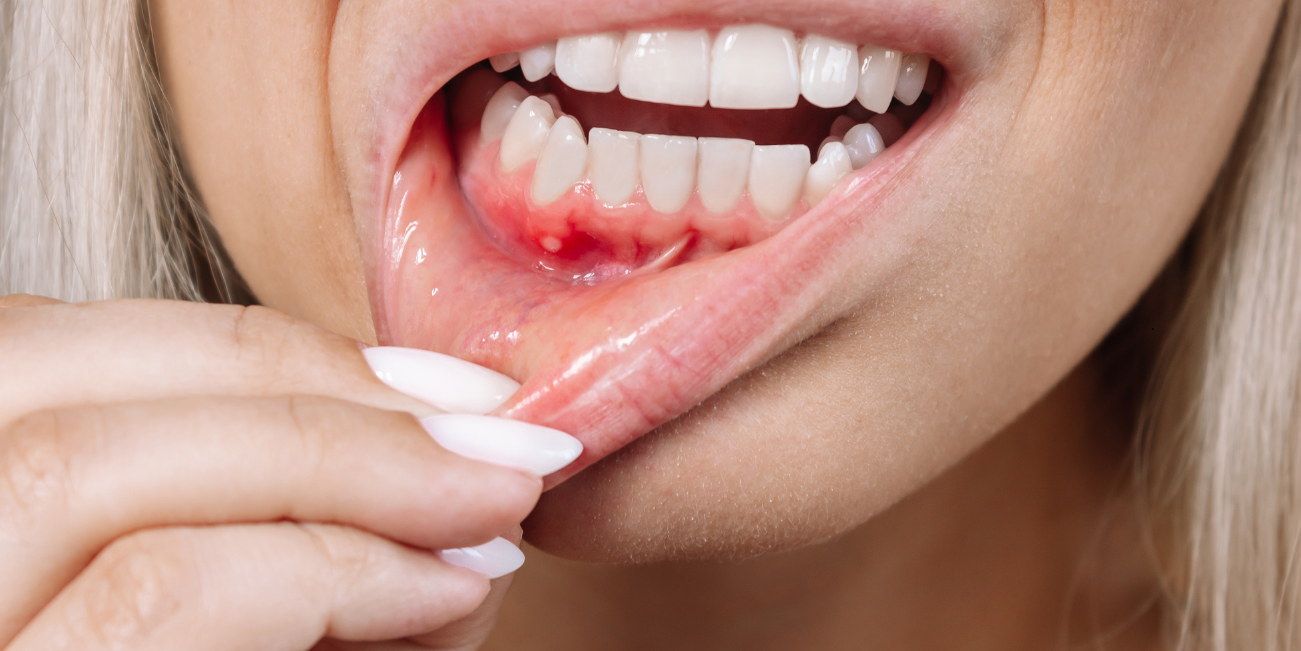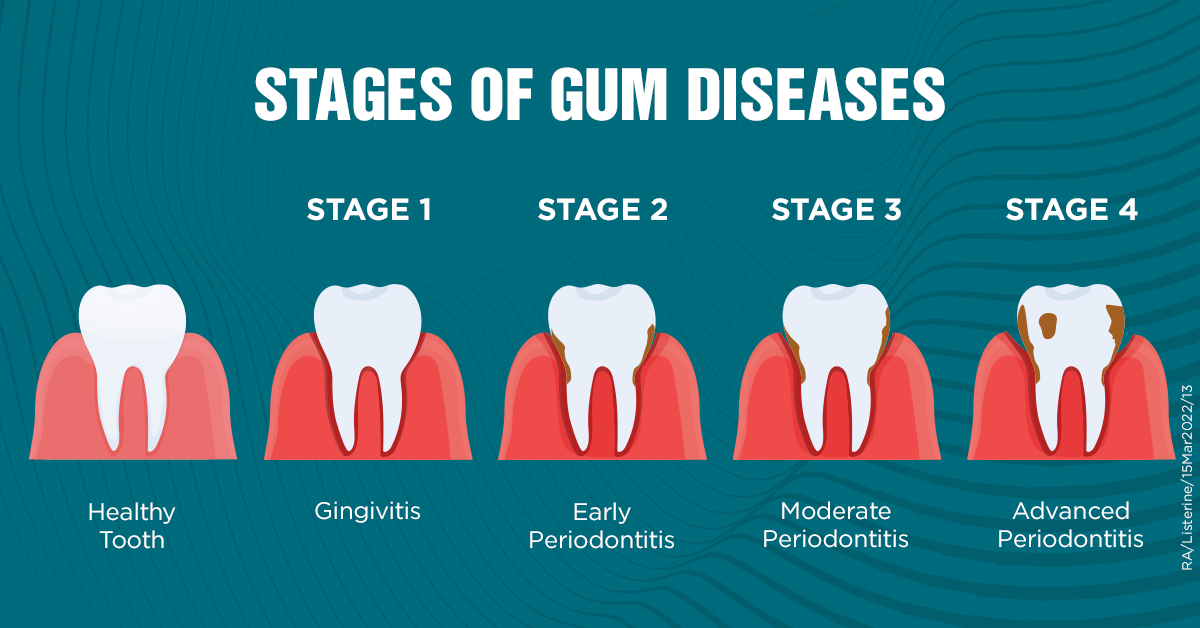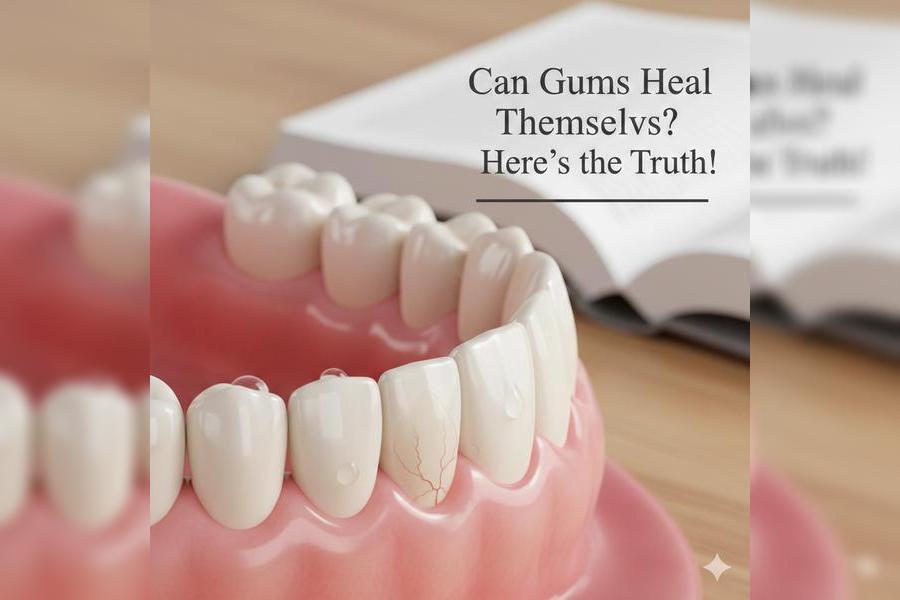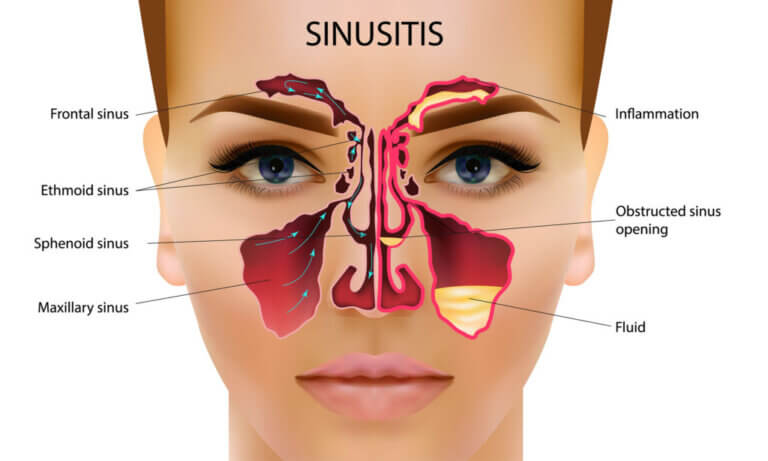Gum problems are way more common than people think. The CDC reports that almost half of U.S. adults over 30 already have some form of gum disease. That’s not a small number. It means if you look around at your coworkers, neighbors, or even family, chances are someone’s gums are bleeding when they brush. And by the time people hit their mid-60s, more than 70% are dealing with moderate to severe gum issues. That’s huge.
Now, most folks think gum health is just about brushing twice a day, flossing (when they remember), and hoping for the best. But gums aren’t that simple. They’re living tissue, and just like your skin, muscles, and bones, they need the right fuel to stay strong. That’s where vitamins and minerals come in. Without them, gums weaken, teeth loosen, and infections spread faster.
So, the big question you might be asking right now is - what vitamin is good for your gums? Fair question. But, it’s not just one. Sure, Vitamin C has been the poster child for healthy gums for decades, but science shows Vitamin D, Vitamin K, calcium, and even Omega-3 fatty acids all play major roles. Skip any of these, and you’ll start to see the cracks (literally) in your gum and tooth health.
Let’s dig into the practical steps you can actually use and uplift your oral health.
Let’s break this down nutrient by nutrient, and I’ll explain not only what they do but also why skipping them can slowly sabotage your oral health.
The Big Vitamins And Nutrients That Matter
When people ask what vitamin is good for your gums, they often expect one magic answer. Like - “Just take this one pill, and all your bleeding gums and sensitivity vanish.” I wish it were that simple.
The truth is, your gums are multitaskers. They don’t just need a single helper; they thrive when there’s an entire team of nutrients working together. Think of it like running a household: Vitamin C might be the one paying the bills, but Vitamin D keeps the lights on, Vitamin K makes sure nothing leaks, and the B vitamins are basically the crew keeping the whole place from falling apart.
Let’s break this down nutrient by nutrient, and I’ll explain not only what they do but also why skipping them can slowly sabotage your oral health.
Vitamin C:

If you’ve got gums that bleed when you brush or floss, the first thing that comes to mind is Vitamin C. This one is the superstar when people think about what vitamin is good for your gums. It’s not hype; it's history. Remember the old stories of sailors with scurvy? Their gums were a disaster - swollen, spongy, bleeding, and their teeth started falling out. Why? No Vitamin C on those long voyages.
Here’s the deal: Vitamin C is critical because your gums are loaded with collagen. Collagen is like the scaffolding that keeps your gum tissue strong and springy. Without enough Vitamin C, that scaffolding turns weak, like old rubber bands snapping apart. And it’s not just about appearance; weak gums are an open door for infections and inflammation.
So if you’re skimping on oranges, strawberries, or bell peppers, you’re missing out on a direct line of defense. And even if you take your Vitamin C seriously, stress, smoking, or even too much processed food can drain your reserves. That’s why a lot of dentists quietly nudge patients toward upping Vitamin C before diving into more drastic treatments.
Vitamin D:
People often overlook it because you don’t “feel” a Vitamin D deficiency the way you feel sore gums from low Vitamin C. But believe me, this one is sneaky. Vitamin D is the architect that decides how well your body uses calcium and phosphorus, which are the raw materials for bones and teeth. If your gums are the foundation of the house, Vitamin D makes sure the concrete (your jawbone) actually sets properly.
The frustrating part? A lot of us are low on Vitamin D without realizing it. Indoor jobs, cloudy climates, sunscreen obsession; all reduce your natural sunlight exposure, which is how your body produces Vitamin D. The result? You might not just have weaker bones, but also gum tissue that can’t quite fight off inflammation. Periodontitis - the fancy word for advanced gum disease - has been repeatedly linked to Vitamin D deficiency.
So when you ask what vitamin is good for your gums, don’t just stop at C. D is the quiet partner you absolutely need in the background, otherwise your efforts are half-baked.
Vitamin A:
Here’s a vitamin that doesn’t get enough spotlight in gum health: Vitamin A. Picture your mouth as a tiny ecosystem, with saliva as the rain that keeps everything alive and balanced. Without enough Vitamin A, that rain dries up. Saliva production drops, your mouth feels parched, bacteria multiply faster, and suddenly your gums are facing little brush fires every day.
Vitamin A is also essential for your mucous membranes; the soft lining of your mouth and gums. When those membranes are nourished, they act like a shield, resisting bacteria and speeding up healing. Deficiency, on the other hand, leaves you with dry mouth, more cavities, and gums that can’t bounce back. If you’re skipping on carrots, sweet potatoes, or dark leafy greens, you’re likely leaving Vitamin A on the table, and your gums know it.
Vitamin K:
Ever brushed your teeth and seen pink foam in the sink? That’s your gums crying out for Vitamin K. This vitamin’s main gig is blood clotting. Without it, every tiny nick turns into a scene from a horror movie. But, Vitamin K isn’t just about clotting; it’s also a behind-the-scenes player in bone metabolism.
Together with Vitamin D, it makes sure calcium gets laid down in the right places, strengthening your jawbone and giving your gums a stable anchor.
Leafy greens like kale and spinach, or fermented foods, are the gold mines here. But if salads aren’t exactly your go-to, don’t be surprised if your gums take longer to heal or bleed more easily.
The B Vitamins:
Think of the B vitamins as the maintenance staff in a busy building. You don’t notice them until they’re gone. B12, B6, B2, and niacin all play a role in keeping your oral tissues strong, your nerves firing properly, and your immune response balanced.
Ever seen those painful little sores inside the mouth? Sometimes that’s a Vitamin B deficiency waving hello. Weakness, inflammation, slow healing - all signs that the maintenance crew hasn’t been showing up. Vegans and vegetarians, in particular, need to watch for B12 deficiency because it’s mostly found in animal foods. And when gums are under constant stress from plaque and bacteria, not having enough B vitamins makes the fight much harder.
Minerals:
And then there are the minerals. While they’re not technically vitamins, you can’t talk about what vitamin is good for your gums without roping them in. Calcium is the obvious one - your teeth are basically built on it. But calcium alone is useless if you don’t have Vitamin D and Vitamin K guiding it into the right places. Phosphorus joins in to strengthen the enamel, while magnesium helps absorb and regulate the whole process.
Zinc deserves a special mention. It fights bacteria and helps wounds heal faster, which is exactly what your gums need after every micro-battle with plaque. If you’ve ever wondered why your mouthwash has zinc listed in the ingredients, now you know - it’s not marketing fluff, it’s legit science.
Putting It All Together
Here’s the kicker: no single nutrient will save your gums in isolation. They’re like instruments in an orchestra. Vitamin C might be the lead violin, Vitamin D the cello, Vitamin K the drums, and the minerals the brass section. Take one out, and the music sounds off. But when they play together? That’s when your gums are healthy, resilient, and ready to fight off disease.
And this is exactly why I tell people to think beyond just “eat an orange.” Sure, Vitamin C matters, but it’s not enough on its own. It’s about balance, synergy, and consistency. It’s about building a daily rhythm where your diet, your oral hygiene, and smart natural products; like The Goodbye Company Gum Disease solution - work together.
Because gum health isn’t a one-trick show. It’s a lifestyle, a collection of choices that add up.
How These Vitamins Actually Work (Mechanisms)

Because sometimes it’s not enough to know which, but also how, so you can see where things break down (diet, absorption, lifestyle, hygiene).
-
Collagen synthesis & tissue repair: Vitamin C is essential for hydroxylation of proline and lysine in collagen, which forms connective tissue in the gums. Without enough vitamin C, collagen is poor, gums are weak.
-
Immune modulation & inflammation control: Vitamins A, D, C, K, B complex help modulate immune response. High inflammation (gingivitis into periodontitis) is often due to imbalance. Oxidative stress is one culprit; antioxidants like C & E help reduce free radicals.
-
Mineral metabolism: Vitamin D (and to some extent K) ensures calcium and phosphorus are used properly - if not, bone loss, jaw bone weakening, which undermines gums.
- Barrier function and saliva production: A healthy mucous membrane lining, enough saliva etc, are first defense. Vitamin A, B vitamins help maintain those tissues.
Common Scenarios: When You Might Be Low, Even If You Think You’re Getting Enough
|
Scenario |
Why You Might Be Deficient / Under-utilizing |
What to Watch For |
|
Poor diet (few fresh fruits/veg) |
Less Vitamin C, A, B vitamins |
Gums bleeding easily, slower healing, dryness, more infection risk |
|
Low sun exposure, darker skin, older age |
Poor Vitamin D levels |
Higher bone loss around teeth, more gum inflammation |
|
Vegan / vegetarian diet |
Less B12, less vitamin A from animal sources, possibly D |
Mouth sores, gum swelling, sensitive teeth roots |
|
Smoking, heavy drinking, certain medications |
Increase oxidative stress, reduce absorption of vitamins, damage tissues |
Chronic gum bleeding, receding gums, less response to treatments |
|
Chronic inflammation or autoimmune disease |
Higher need, more consumption of antioxidants to counter oxidative stress |
Gums that never fully heal, recurrent bleeding, sensitivity |
Recommended Vitamins And Nutrients: How Much You Really Need

Numbers on a chart can feel cold, so let’s actually talk through the daily amounts you should be aiming for. Instead of rattling off figures, I want to paint a picture of how these vitamins and minerals sneak into your meals and why your gums desperately want them.
Vitamin C: Your Daily Spark
For most adults, the baseline is somewhere around 75–90 milligrams a day. That’s not as much as you’d think - it’s basically a cup of strawberries or a single orange. But here’s the thing: smokers, stressed-out folks, or people healing from gum inflammation may need more. Vitamin C is not something your body stores well, so you’ve got to top it up daily. When you do, collagen builds strong, gums stop bleeding so easily, and that nagging sensitivity starts calming down.
Vitamin D: Sunshine in a Bottle (or on a Plate)
The average recommendation is about 600 to 800 IU daily, which translates to 15–20 micrograms. If you live in a place where winter drags on, you probably need even more. Vitamin D is tough because you can’t rely only on food; you need sunlight or supplements. Without enough, calcium can’t do its job, and your gums lose the strong jawbone support they cling to. Think salmon fillet, a few minutes of sunshine, or fortified plant milk - those are your best bets.
Vitamin A: Feeding Your Mucous Membranes
Adults generally need between 700 and 900 micrograms of Vitamin A. That sounds technical, but in real life, it’s one sweet potato or a generous serving of spinach. With enough Vitamin A, your saliva flows, your gums stay moist, and your body fends off bacterial invaders. Without it, your mouth feels dry, sore, and vulnerable. This one is all about prevention - catching problems before they flare up.
Vitamin K: The Quiet Helper
Somewhere around 90 to 120 micrograms a day is the sweet spot for Vitamin K. Leafy greens like kale, collard greens, and spinach make hitting that number pretty easy if you sneak them into your meals. Why does it matter? Because Vitamin K makes sure your gums don’t bleed endlessly when brushed and also teams up with Vitamin D to keep your bones, including your jaw, resilient.
B Vitamins: Tiny But Mighty
Let’s single out Vitamin B12 here because gum health often falters when this one runs low. Adults need just 2.4 micrograms per day; an amount so small it’s almost comical. Yet without it, mouth sores, inflammation, and gum tissue weakness creep in. Meat, dairy, and eggs cover it, but if you’re vegan or vegetarian, you’ll need fortified foods or supplements to close the gap.
Calcium and Friends: Building the Backbone
About 1000 to 1200 milligrams of calcium daily is the standard, and it matters because your teeth and jawbone are calcium warehouses. But calcium is only half the story. Phosphorus - about 700 milligrams daily, works hand in hand to harden enamel. Add in magnesium at 300 to 400 milligrams and you’ve got the trio that makes your teeth tough enough to resist decay while giving gums the strong foundation they need.
Zinc: The Antibacterial Ally
You’re looking at 8 to 11 milligrams of zinc per day. Shellfish, nuts, or legumes can cover it. This mineral might not sound glamorous, but it plays a quiet hero role in healing wounds and cutting down harmful bacteria. Basically, it’s like sending in a cleaning crew to tidy up after the daily battles happening in your mouth.
Pulling It All Together
So, when people ask what vitamin is good for your gums, the answer isn’t just one name. It’s this whole lineup - Vitamin C as the showrunner, Vitamin D and K as the behind-the-scenes coordinators, A and the Bs keeping everything balanced, while calcium, phosphorus, magnesium, and zinc do the heavy lifting. If even one of them is missing, the system stumbles. But when you cover your bases daily, your gums are not only healthier; they’re tougher, calmer, and far more resilient.
Real-Life Application: Diet + Oral Care + Natural Products
Here’s how to actually put all this into practice - because knowing which vitamins help your gums is one thing, but living it daily is where the results happen.
Diet first: load your plate with colorful fruits and veggies (hello, Vitamin C), oily fish like salmon or mackerel for Omega-3s, dairy or plant-based calcium alternatives, and lean meats if that’s part of your diet. These foods give your gums the raw materials they need to heal and stay strong.
Lifestyle hacks: get a bit of sun exposure for natural Vitamin D (without burning yourself, of course), cut down or quit smoking if that’s still in the picture, reduce added sugars, and try stress management techniques. Believe it or not, stress hormones can weaken your immune system and show up in your gums.
Oral hygiene: brushing twice a day with a soft-bristle brush, flossing like it actually matters, and cleaning your tongue are all baseline habits. Avoid going overboard with acidic foods and drinks that can wear down enamel. And this is also where a natural product can tip the scales in your favor - like The Goodbye Company Gum Disease oral solution.
It’s infused with Omega 3 and 9 oils, plus neem and clove essential oils, which are known to calm inflammation, ease gum sensitivity, and help prevent gum disease naturally. If you’ve been noticing bleeding gums or discomfort when eating hot or cold foods, this solution can be the extra layer of defense you’ve been missing.
Supplement smartly: if your diet isn’t covering everything, or you’ve got a known deficiency, consider a daily multivitamin or targeted supplement (Vitamin C or D are the big ones for gums). Supplements aren’t a magic bullet, but they're a solid backup when diet falls short.
The Goodbye Company Gum Disease Oral Solution: Natural Help In Your Routine

Now, where our product fits in. Because understanding what vitamin is good for your gums is helpful, but sometimes you need added support - especially if you already have symptoms like bleeding gums, sensitivity, gingivitis, etc.
- What it is: The Goodbye Company Gum Disease oral solution is an all-natural preventative oral care solution. It’s designed to both prevent and treat gingivitis.
- What’s inside: It’s infused with Omega-3 and Omega-9 oils, plus neem and clove essential oils. These ingredients help reduce inflammation, fight bacteria, promote healing of gum tissue - working synergistically with the vitamins and minerals your body needs.
- Who it helps: If you currently suffer from poor oral health - bleeding gums, tooth pain, sensitivity to hot or cold - introduce this Solution into your daily routine. It doesn’t replace vitamins or hygiene, but boosts them, especially in a natural, gentle way.
- Why “natural gum disease cure”: Because the combination of anti-inflammatory oils (omega), antiseptics (clove, neem), supports the foundations (vitamins, minerals) rather than only treating symptoms.
In short, when you know what vitamin is good for your gums, using The Goodbye Company Gum Disease oral solution makes that knowledge more powerful - accelerating healing, soothing sensitivity, reducing bleeding.
Integrating It All: A Sample 7-Day Gum Health Plan
Let’s put together a weekly plan, showing how diet, vitamin intake, product use, and hygiene come together.
Day 1-2:
-
Start your morning with a citrus/berry smoothie (Vitamin C, antioxidants).
-
Lunch: leafy greens + grilled salmon (Vitamin D, Omega-3, calcium).
-
Evening: use The Goodbye Company solution (rinse/brush per instruction) before sleep.
Day 3-4:
-
Snack on bell peppers, carrots, sweet potatoes (Vitamin A, C).
-
Get sun exposure (15-20 minutes if possible) for Vitamin D.
-
Floss gently, brush with soft brush.
Day 5-7:
-
Include dairy or fortified alternatives for calcium & phosphorus.
-
Leafy greens for Vitamin K.
-
Review symptoms: are gums less swollen/bleeding?
Adjust based on how you feel.
FAQs: What People Really Want to Know About Vitamins And Gum Health
What vitamin is best for gum health?
If I had to crown one winner, it’s Vitamin C. It’s essential for collagen production, which keeps your gums firm and prevents them from bleeding. But honestly, gum health is a team effort - Vitamin D, K, A, and even minerals like calcium and zinc all play vital roles.
Can vitamins actually reverse gum disease?
Vitamins won’t magically “cure” gum disease, but they can definitely help your gums heal and prevent things from getting worse. For example, Vitamin C reduces bleeding and swelling, while Vitamin D supports bone strength so your teeth stay put. Think of vitamins as reinforcement, not a replacement for brushing, flossing, or seeing your dentist.
Is Vitamin C good for bleeding gums?
Absolutely. Bleeding gums are often one of the first red flags of Vitamin C deficiency. Getting enough - through food or supplements, helps your body repair blood vessels and build stronger gum tissue, which means less bleeding over time.
What about Vitamin D - does it help gums too?
Yes, in a big way. Vitamin D helps your body absorb calcium, which strengthens the bone that supports your teeth. Studies even show people with higher Vitamin D levels tend to have less gum inflammation. If you’re low on it, your gums may struggle to heal properly.
Can I just take a multivitamin for healthy gums?
A decent multivitamin can cover the basics, especially if your diet isn’t perfect (whose is?). But it’s always better to get nutrients from real food when you can - think oranges, salmon, leafy greens, and nuts. Supplements should fill gaps, not be your only source.
How long does it take vitamin C to help bleeding gums?
It depends on how deficient you are, diet, hygiene, and whether you are using complementary remedies (like The Goodbye Company solution). Some studies show improvements in a few weeks of increased intake and good care. If bleeding is severe or chronic, sometimes months.
Can children get gum disease from lack of vitamins?
Yes. Children who don’t get enough Vitamin C, D, B vitamins etc are more vulnerable. Also, poor dental hygiene plus low nutrients = high risk of early gingivitis.
Can too much of a vitamin be harmful?
Yes. Fat-soluble vitamins (A, D, K) can accumulate and cause toxicity if taken in extreme excess. Vitamin C in huge doses can cause stomach upset. Always aim for balance.
Will vitamin supplements alone cure gum disease?
No. They can support healing, reduce symptoms, but good oral hygiene (brushing, flossing, professional cleanings), lifestyle (diet, no tobacco, moderate sugar), and maybe targeted products are still essential.
Outlook
So, what vitamin is good for your gums? The “best” isn’t just one: Vitamin C is arguably the most critical for gums. But Vitamins D, A, K, B complex, plus minerals like calcium, phosphorus and zinc, all contribute. The synergy is what's powerful.
If your gums are giving you trouble, use a two-pronged approach:
-
Internal support: improve diet/nutrient intake, check for deficiencies.
-
External/natural support: quality products, proper hygiene, gentle but consistent care.
One excellent natural tool to add is The Goodbye Company Gum Disease oral solution - with Omega 3 & 9 oils, neem, clove - because it enhances the body’s healing rather than masking symptoms.













